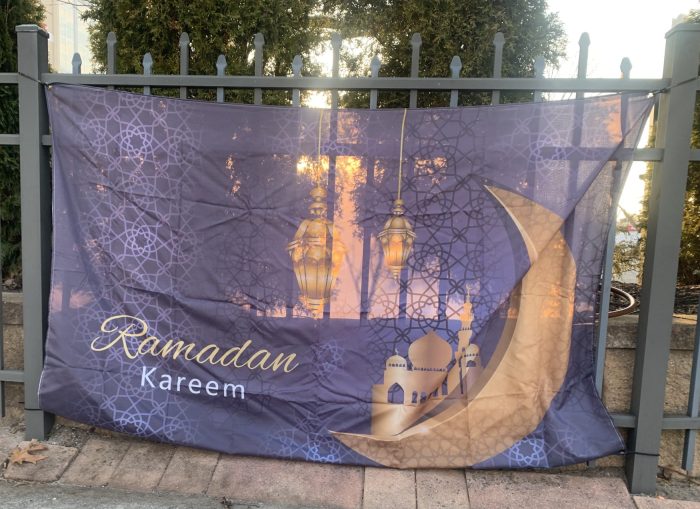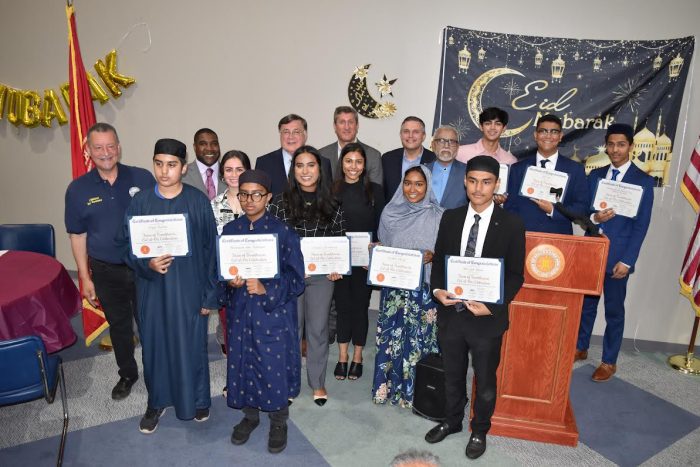By Sabrina Artusa
The crescent moon lit up the night sky Feb. 28, signifying the beginning of Ramadan, the Islamic month of fasting. This holy month honors the revelation of the Quran to Muhammad, and Muslims celebrate by strengthening their faith through restraint.
For Sabri, a Setauket mechanic, the day begins at 4 a.m. He eats with his wife and children before his fast starts at 5 a.m. In the evening, he will put on a Muslim talk show and listen to the “Azan” (or “Adhan”), a song that precedes prayer, before breaking his fast in a meal called the “Iftar.” In Istanbul, Sabri loved to listen to the “Azan” as the sun rose, right before the first prayer of the day.
For the Iftar, Sabri’s meals don’t deviate much from what he typically eats, but his meal will likely contain meat, which his wife ensures is “halal” by shopping at a Turkish grocer.
“This is for control of your system,” Sabri said. “It is for yourself.” Water, also, is not allowed during the fasting period. Of course, there are exceptions for those whom it would be harmful or dangerous to fast, and children are also not expected to observe.
Muslims not only fast from food but also restrain from doing any other action that is against Islamic principles, such as lying. Stony Brook University professor Ismail Zahed emphasized that Ramadan is meant to remove the reliance on nonnecessities in order to “factor in Islam in the right way.”
“The most basic thing — to feed yourself — is taken for granted,” Zahed said. “[Ramadan] is a reminder of those who do not have. It brings you closer to those who do not have… It is not waiting for the 5:40 time card [sunset] to hit the table. It is making all the effort to think about that and to think of all the ways you can reach out and help.”
Removing superfluous luxuries helps Muslims connect more not only with their religion but also with their friends, family and community.
Charitable acts are another signature part of Ramadan and part of the reason some mosques provide the Iftar for free. This tenet of Islam, giving to charity, is one of the five pillars of Islam, alongside fasting, pilgrimage, profession of faith and prayer.
Ramadan serves to help Muslims get closer to Allah by looking inward at their own relationship with their faith, but it is also observed communally, with Muslims gathering to recite a portion of the Quran at mosques each night and breaking the fast together. Beginning on the first day of Ramadan, an Imam will recite one-thirtieth of the Quran so that, by the end of the month, it will have been read in its entirety.
“It is also a month where families come together in observance of this particular event [the revelation of the Quaran] where we remind each other why this is so important. Getting people to sit together at the same time is difficult,” Zahed said.
“My favorite part is to open the Iftar with my family,” Sabri said. Sabri doesn’t often go to the mosque for Iftar, preferring to break the fast at home with his family. He does visit the mosque for a prayer at least once a week.
For Zahed, Ramadan is a chance to focus more on Islam, although the changes don’t end once the month is over.
At the end of Ramadan, Muslims will celebrate with “Eid al-Fitr,” which will occur March 29, the day of the new crescent moon.
“People have a really good heart,” Sabri said. “And God makes them see it.”







